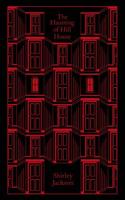Publisher's Synopsis
Chapter 1 ONE morning, in a flat in one of the great buildings in Gorokhovaia Street, the population of which was sufficient to constitute that of a provincial town, there was lying in bed a gentleman named Ilya Ilyitch Oblomov. He was a fellow of a little over thirty, of medium height, and of pleasant exterior. Unfortunately, in his dark-grey eyes there was an absence of any definite idea, and in his other features a total lack of concentration. Suddenly a thought would wander across his face with the freedom of a bird, flutter for a moment in his eyes, settle on his half-opened lips, and remain momentarily lurking in the lines of his forehead. Then it would disappear, and once more his face would glow with a radiant insouciance which extended even to his attitude and the folds of his night-robe. At other times his glance would darken as with weariness or ennui. Yet neither the one nor the other expression could altogether banish from his countenance that gentleness which was the ruling, the fundamental, characteristic, not only of his features, but also of the spirit which lay beneath them. That spirit shone in his eyes, in his smile, and in his every movement of hand and head. On glancing casually at Oblomov a cold, a superficially observant person would have said, -Evidently he is good-natured, but a simpleton-; whereas a person of greater penetration and sympathy than the first would have prolonged his glance, and then gone on his way thoughtfully, and with a smile as though he were pleased with something. Oblomov's face was neither reddy nor dull nor pale, but of an indefinite hue. At all events, that was the impression which it gave-possibly because, through insufficiency of exercise, or through want of fresh air, or through a lack of both, he was wrinkled beyond his years. In general, to judge from the extreme whiteness of his bare neck, his small, puffy hands, and his soft shoulders, one would conclude that he possessed an effeminate body. Even when excited, his actions were governed by an unvarying gentleness, added to a lassitude that was not devoid of a certain peculiar grace. On the other hand, should depression of spirits show itself in his face, his glance would grow dull, and his brow furrowed, as doubt, despondency, and apprehension fell to contending with one another. Yet this crisis of emotion seldom crystallized into the form of a definite idea-still less into that of a fixed resolve. Almost always such emotion evaporated in a sigh, and shaded off into a sort of apathetic lethargy. Oblomov's indoor costume corresponded exactly with the quiet outlines of his face and the effeminacy of his form. The costume in question consisted of a dressing-gown of some Persian material-a real Eastern dressing-gown-a garment that was devoid both of tassels and velvet facings and a waist, yet so roomy that Oblomov might have wrapped himself in it once or twice over.










